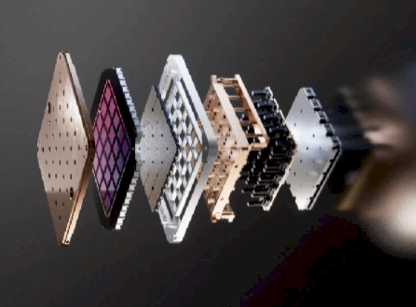Sources Dojo Venkataramanan Dojo Tesla November

In November, discussions led by Dojo Venkataramanan at Tesla underscored the critical intersection of regulatory frameworks and innovative technology in shaping the future of electric vehicles. As Tesla navigates a rapidly evolving landscape marked by shifting policies, the company’s approach to sustainable transportation emerges as a key focal point. The implications of these strategies extend beyond mere market positioning; they raise essential questions about the role of design and artificial intelligence in manufacturing. What might this mean for the broader industry as it seeks to adapt to these transformative trends?
Key Insights From the Event
The recent event featuring Dojo Venkataramanan from Tesla offered several critical insights into the company’s strategic direction and technological advancements.
Key discussions highlighted the impact of evolving electric vehicle policies on market dynamics and consumer adoption.
Tesla’s commitment to addressing regulatory frameworks and enhancing infrastructure is poised to accelerate the transition to sustainable transportation, thereby fostering a more robust electric vehicle ecosystem.
See also: Sources Cruise Houston Dallasbensingerreuters
Tesla’s Innovations in EV Design
Innovations in electric vehicle (EV) design at Tesla continue to set benchmarks within the automotive industry, showcasing a commitment to both performance and sustainability.
Key advancements in battery technology enhance energy density and longevity, while streamlined shapes significantly improve aerodynamic efficiency.
These innovations not only elevate driving experience but also contribute to reduced energy consumption, reinforcing Tesla’s leadership in the EV market.
Role of AI in Manufacturing
Efficiency in manufacturing has been significantly enhanced through the integration of artificial intelligence (AI), revolutionizing traditional processes.
AI integration addresses automation challenges by facilitating predictive maintenance, ensuring quality assurance, and optimizing supply chains.
Additionally, it drives workforce transformation, enabling employees to focus on strategic tasks rather than repetitive ones, ultimately leading to increased productivity and innovation within the manufacturing sector.
Future Trends in Sustainable Energy
Emerging from a global push for eco-friendly solutions, future trends in sustainable energy are poised to reshape the energy landscape significantly.
Innovations in renewable energy sources, such as solar and wind, coupled with advancements in clean technology, will enhance energy efficiency and reduce carbon footprints.
Additionally, decentralized energy systems and energy storage solutions are expected to play critical roles in achieving sustainability goals.
Conclusion
In the rapidly evolving landscape of electric vehicles, Tesla’s strategic vision emerges as a beacon of innovation and sustainability. The company’s unwavering commitment to pioneering design, cutting-edge technology, and robust regulatory engagement positions it not merely as a leader but as an undisputed titan in the industry. As the world hurtles toward a future defined by sustainable energy, Tesla’s proactive approach ensures that it remains not just relevant, but an unstoppable force in reshaping transportation for generations to come.





